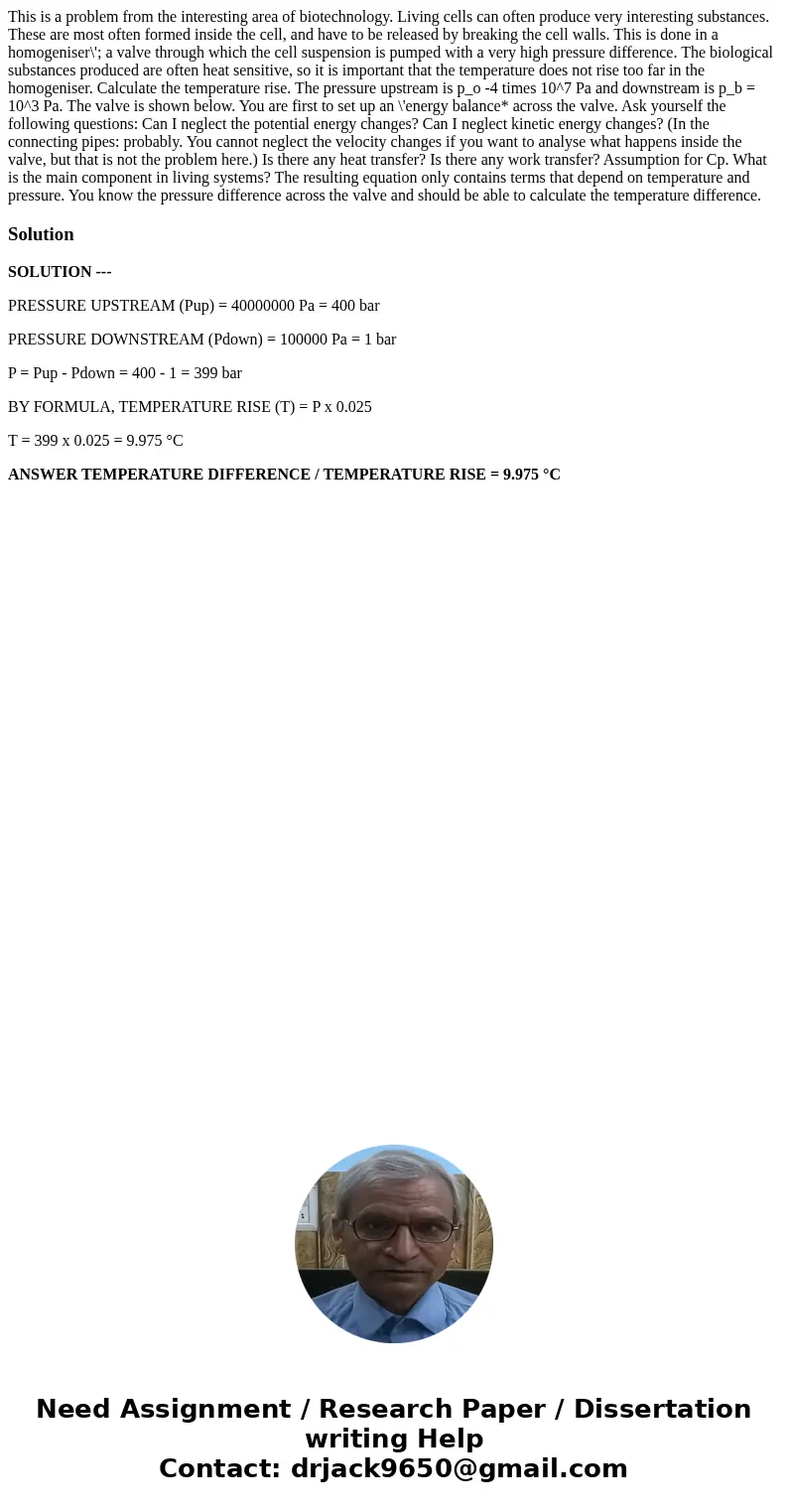This is a problem from the interesting area of biotechnology
This is a problem from the interesting area of biotechnology. Living cells can often produce very interesting substances. These are most often formed inside the cell, and have to be released by breaking the cell walls. This is done in a homogeniser\'; a valve through which the cell suspension is pumped with a very high pressure difference. The biological substances produced are often heat sensitive, so it is important that the temperature does not rise too far in the homogeniser. Calculate the temperature rise. The pressure upstream is p_o -4 times 10^7 Pa and downstream is p_b = 10^3 Pa. The valve is shown below. You are first to set up an \'energy balance* across the valve. Ask yourself the following questions: Can I neglect the potential energy changes? Can I neglect kinetic energy changes? (In the connecting pipes: probably. You cannot neglect the velocity changes if you want to analyse what happens inside the valve, but that is not the problem here.) Is there any heat transfer? Is there any work transfer? Assumption for Cp. What is the main component in living systems? The resulting equation only contains terms that depend on temperature and pressure. You know the pressure difference across the valve and should be able to calculate the temperature difference.
Solution
SOLUTION ---
PRESSURE UPSTREAM (Pup) = 40000000 Pa = 400 bar
PRESSURE DOWNSTREAM (Pdown) = 100000 Pa = 1 bar
P = Pup - Pdown = 400 - 1 = 399 bar
BY FORMULA, TEMPERATURE RISE (T) = P x 0.025
T = 399 x 0.025 = 9.975 °C
ANSWER TEMPERATURE DIFFERENCE / TEMPERATURE RISE = 9.975 °C

 Homework Sourse
Homework Sourse